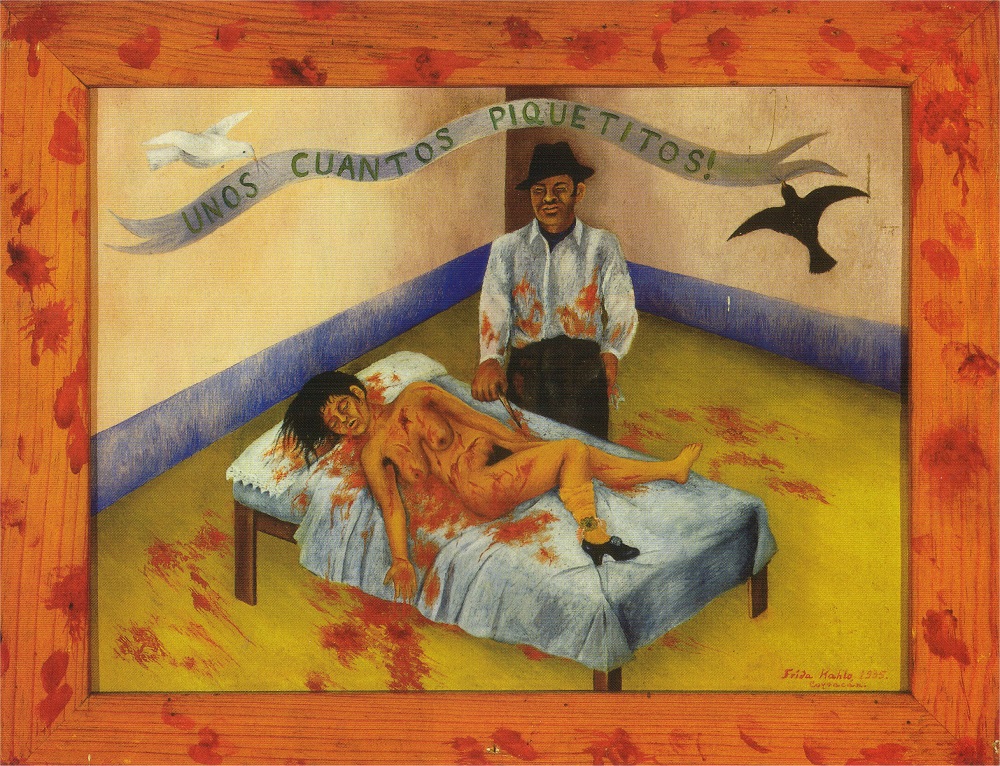Trigger warning – mentions of rape and homicide
Yasmin Curzi, Rio de Janeiro, Brazil, SSH Blog Correspondent

Maré’s Favela (Rio de Janeiro/RJ): Valdina de Souza Araújo, 44 years old, street vendor. Constantly assaulted by her partner, the taxi-driver Eduardo Martim da Silva, one day she went missing. Her clothes were found covered with blood in his house.
Mickey’s Community (Niterói/RJ): Michelle Ferreira Ventura, 30 years old, maid. After being constantly harassed by her neighbored, Leonardo Bretas Vieira, Michelle stood up to him. He beat her until she lost consciousness. After four months in the hospital, she died.
São Paulo: Clara Averbuck, writer and feminist activists. She was raped by an Uber driver but did not report it to the authorities knowing how the system operates against women’s dignity and she didn’t want to be violated again by the State. In order to give voice to victims of this type of violence, she started a campaign entitled “#myharasserdriver/ #myabuserdriver”.
Recently released information from Women’s Dossier[1] shows the dimension of the dramatic scenario of violence against women in Rio de Janeiro. In the last three months of 2016, 42 attempts of murder of women were qualified as gendered crimes, signifying 27,3% of the total. A woman’s life was threatened, simply for being a women, every two days. The notifications of rape shows that 39,8% of the aggressors were somehow related with the victims (8,9% her partner or ex-partner). In addition, 55,5% of the victims were young girls, under 14 years old.
The stories of Valdina and Michelle, selected among thousands, show us that neither public spaces nor the domestic sphere are safe for women. Violence against women is the norm in this society.
It’s usual to associate the male protagonists of cruelty crimes against women as psychopaths, monsters, or mentally ill men that, by their nature, are “inherently violent”. This type of discourse intends to dissociate those who commit a violent act from the rest of the society. We can apply penalties toward them. We can exclude them from our social lives.
Except that, in fact, these men are ordinary men. They are men that live with these women who have regular lives, regular jobs and regular social relations. Thus, it’s a much more complex scenario, one that, maybe, people don’t want to face. It’s easier not to think about the changes that society really needs to make. In other words, to realize that these men are ordinary men implies that it’s not the individual behavior that is the real cause of the violence against women, but instead it’s the whole mindset that permeates our society that makes this violence possible. There are no “bad apples” needing to be removed from a barrel of pretty apples. The whole barrel is putrefied. It is a whole culture funded in the disrespect of women and a whole history of deprivation of equal value informing all of our relations.
Devaluation of women starts in the very first years of their lives: boys are more wanted than girls in some religions and societies. Then, usually parents raise their girls without the same freedoms that are given to boys and socialize them with the idea that they are fragile or incapable of doing things on their own. They are also forced to do housekeeping, while boys aren’t. Often, teachers opt to hear boys instead of girls in schools. So girls are more silenced. Media and propaganda leads them to think that they are never good enough – not pretty enough, nor smart enough. All of these are types of psychological violences which cause several traumas in women’s lives. Young girls are also the very first victims of trafficking of persons for sexual exploitation, domestic abuse and rape. Women are disrespected in the work sphere – in Brazil, black women are the main group in the informal market. Also, women are generally not recognized by their attributions in the formal market, suffering from sexual harassment, inequality of payment, demission after giving birth, etc.
Both private and public sphere are unsafe for women because they are not protected from abuse, rape, homicide and others types of violences.
My intention in this article is to show that violence against women, in all its forms, is a symptom of a mindset that constitutes the structure of our society. And this mindset is the fundamental root of that putrified barrel. All violence is connected by disrespect and by the devaluation of women that makes them a second-class group in our society.
In order to put an end to violence against women we must face this structure, change the way women are perceived at a much more profound level. This involves discussing education, intimate relations, media, democracy and public institutions. This involves the true recognition of women as human beings.
[1] Dossiê Mulher 2017 / Instituto de Segurança Pública; Organizadores: Andréia Soares Pinto, Flávia Vastano, Orlinda Claudia R. Moraes. – Rio de Janeiro: Instituto de Segurança Pública, 2016.
Yasmin is a Research Assistant at the Center for Research on Law and Economics at FGV-Rio. She has a BA in Social Sciences from FGV-Rio and a Master Degree in Social Sciences from PUC-Rio, where she wrote her thesis on street harassment and feminists’ struggles for recognition.
